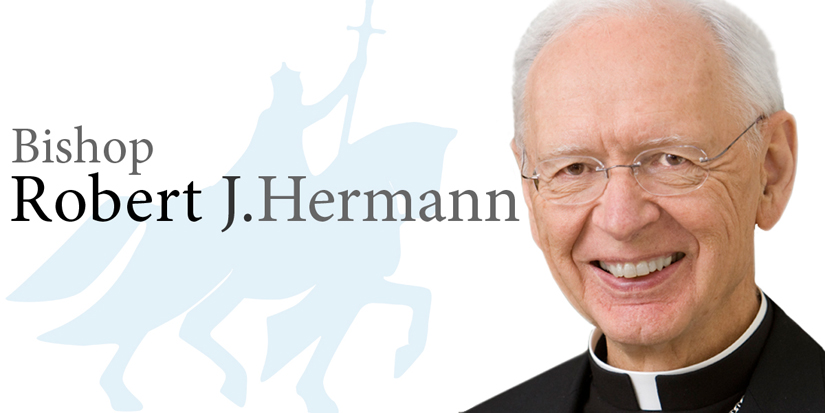Some billionaires give away massive amounts of money to promote dark causes. Contrast them with Jesus, the God-Man, who gives us His Body and Blood as food to prepare us for eternal life with our Heavenly Father.
On the Feast of the Body and Blood of Our Lord, we ponder the mystery of this total self-giving. The Old Testament is about the mystery of God giving Himself away to save His people.
In the Book of Exodus, when God appears to Moses at the burning bush, God tells Moses, “I have witnessed the affliction of my people in Egypt and have heard their cry against their taskmasters … Therefore, I have come down to rescue them from the power of the Egyptians and lead them up from that land into a good and spacious land, a land flowing with milk and honey.”
God spares no costs in rescuing His people from slavery. In the first reading, the people respond by pledging God total obedience in exchange for His commitment to them. To seal this agreement, Moses offers the sacrifice of young bulls. He took blood from the sacrifice and sprinkled it on the people saying, “This is the blood of the covenant that the Lord has made with you in accordance with all these words of His.”
In the second reading, the author says that Christ “entered once for all into the sanctuary, not with the blood of goats and calves but with His own blood, thus obtaining eternal redemption.”
He argues that if animal sacrifices cleanse people who are defiled, “how much more will the blood of Christ, who through the eternal Spirit offered Himself unblemished to God, cleanse our consciences from dead works to worship the living God.”
Here Scripture is clear: Through the blood of Jesus, our consciences are cleansed and our sins forgiven.
The Gospel is the story of the Last Supper. Christ “took bread and said the blessing, broke it, gave it to them and said, ‘Take it; this is my body.’ Then He took a cup, gave thanks, and gave it to them, and they all drank from it. He said to them, ‘This is my blood of the covenant, which will be shed for many. Amen, I say to you, I shall not drink again from the fruit of the vine until the day when I drink it new in the kingdom of God.’”
Having said this, He went out to the Garden of Olives to begin His passion.
From the very beginning, the Catholic Church has taught that Jesus took bread and changed it into His real Body. He took wine and changed it into His real Blood. Likewise, the Catholic Church has always taught that when Jesus said to them, “Do this in memory of me,” He was telling the apostles, and us, that when the apostles do what Jesus did at the Last Supper, they, and their successors, change bread and wine into Christ’s Body and Blood.
The power of God dwells in the consecrated bread and wine. When we worthily consume the Holy Eucharist, we consume divine power. The power of the Eucharist is more powerful than our weaknesses. The Church teaches us that the Eucharist takes away venial sin.
You may well ask yourself: “If the Eucharist is so powerful, then why do I continue to fall into sin?” One question to ask might be: “Just where would you be if you didn’t receive the Eucharist?” It could very well be that you might no longer have the faith, or even be alive.
On the other hand, where is the role of faith in the reception of the Eucharist? Do I receive it routinely without making any preparation? When I receive Christ in the Eucharist, do I take some time to adore Him? Do I recognize what I have within Jesus, who died for me on the cross?
The more I am aware of His holiness and my sinfulness, the more I open my heart to receive a love that will love me out of my sinfulness.
For example, on the Feast of St. Clare in 1972, I concelebrated Mass with Msgr. Martin Hellreigel. I awoke that morning with a heaviness I could not shake. I examined my conscience but could not get in touch with the source of the heaviness.
In the homily, Msgr. Hellreigel remarked that when the Saracens put ladders against the convent walls to attack the sisters, St. Clare took the monstrance with the Holy Eucharist in it, walked out onto the roof of the convent and bravely said, “How dare you desecrate the Body of Christ.” With that, the ladders of the Saracens were overturned and they fled in fear.
That gave me some hope. When I consumed the Precious Blood from the chalice, I simply said, “May this Precious Blood which I am receiving cleanse my spirit, soul and body.” I turned to go up to the tabernacle to get hosts for distribution, and it was almost as if I was lifted up to the tabernacle. My heaviness and darkness were gone.
Later in the day, as I was praying about this, I remembered that on the previous evening I had agreed to pray with someone suffering from the occult. Needless to say, thanks to faith in the Eucharist, the evil one was gone.
When receiving the Holy Eucharist, do we make a faith connection between the all-loving Christ and our inner poverty, welcoming relief? Such faith is transformative.